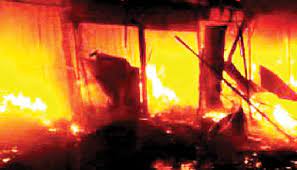Taiwan election poses early 2024 test of U.S. aim to steady China ties

Washington has issues regardless of the outcome of Taiwan’s election next week; a win by the governing party would undoubtedly heighten tensions with China, while a victory by the opposition may prompt embarrassing inquiries regarding the island’s security strategies.
For the Biden administration’s objective of mending relations with China in 2024, the presidential and legislative elections on January 13th offer the first significant wild card.
Beijing regards Taiwan as its own territory and has even gone so far as to portray the elections on the island as a battle between peace and war across the Taiwan Strait, threatening to provoke violence should any effort be made to fight for official independence for Taiwan. Taiwan’s government disagrees with China’s claim to sovereignty.
U.S. officials have been careful to avoid appearing to steer or to interfere with the island’s democratic process.
“Our strong expectation and hope is that those elections be free of intimidation or coercion, or interference from all sides. The United States is not involved and will not be involved in these elections,” U.S. ambassador to China Nicholas Burns said in December.
Such detachment has proved tricky in the past. The Obama administration raised eyebrows before Taiwan’s 2012 election when a senior U.S. official aired doubts about whether then-presidential candidate Tsai Ing-wen could maintain a stable relationship with China.
Tsai, of the Democratic Progressive Party (DPP), lost that year but won the presidency in 2016 and reelection in 2020 and tensions with China soared, raising fears Beijing might act on its vow to bring Taiwan under its control by force if necessary.
Term limits bar Tsai from running again, but China has branded this year’s DPP candidate and current Taiwan Vice President Lai Ching-te as a separatist, and analysts expect Beijing to ramp up military pressure should he prevail.
Both the DPP and Taiwan’s largest opposition party, the Kuomintang (KMT), say only they can preserve the peace and have committed to bolstering Taiwan’s defenses. Both say only Taiwan’s 23 million people can decide their future, although the KMT says it strongly opposes independence.
Washington also says it does not support independence, but there is some concern in the U.S. capital that a victory by the KMT’s Hou Yu-ih could undermine U.S. efforts to beef up Taiwan’s military deterrence. The party traditionally favors closer ties to China, though denies being pro-Beijing.
“Administration officials’ lips say they are neutral, but their body language, reflected in overall policy statements about China, say they support the DPP they know rather than the KMT they are unsure about,” said Douglas Paal, a former unofficial U.S. ambassador to Taiwan.
Paal said there is ambivalence in Taiwan about heavier investment in defense, and that the KMT sees better ways to maintain peace than military spending, which would mean higher taxes with no prospect of matching China’s capabilities.
“With wars in Gaza and Ukraine, American capacity stretched, and its future direction debated at home, the status quo has to look preferable to many in Washington,” he said.
Laura Rosenberger, chair of the American Institute in Taiwan, a Virginia-based office that manages unofficial U.S. ties with Taiwan, has met both Lai and Hou on their U.S. visits last year.
“U.S. policy on Taiwan will remain the same regardless of which party is in power. We look forward to working with whomever Taiwan voters elect,” a State Department spokesperson said.
Some U.S. officials are bracing for China to increase pressure on Taiwan militarily, economically and diplomatically regardless of who is elected.





